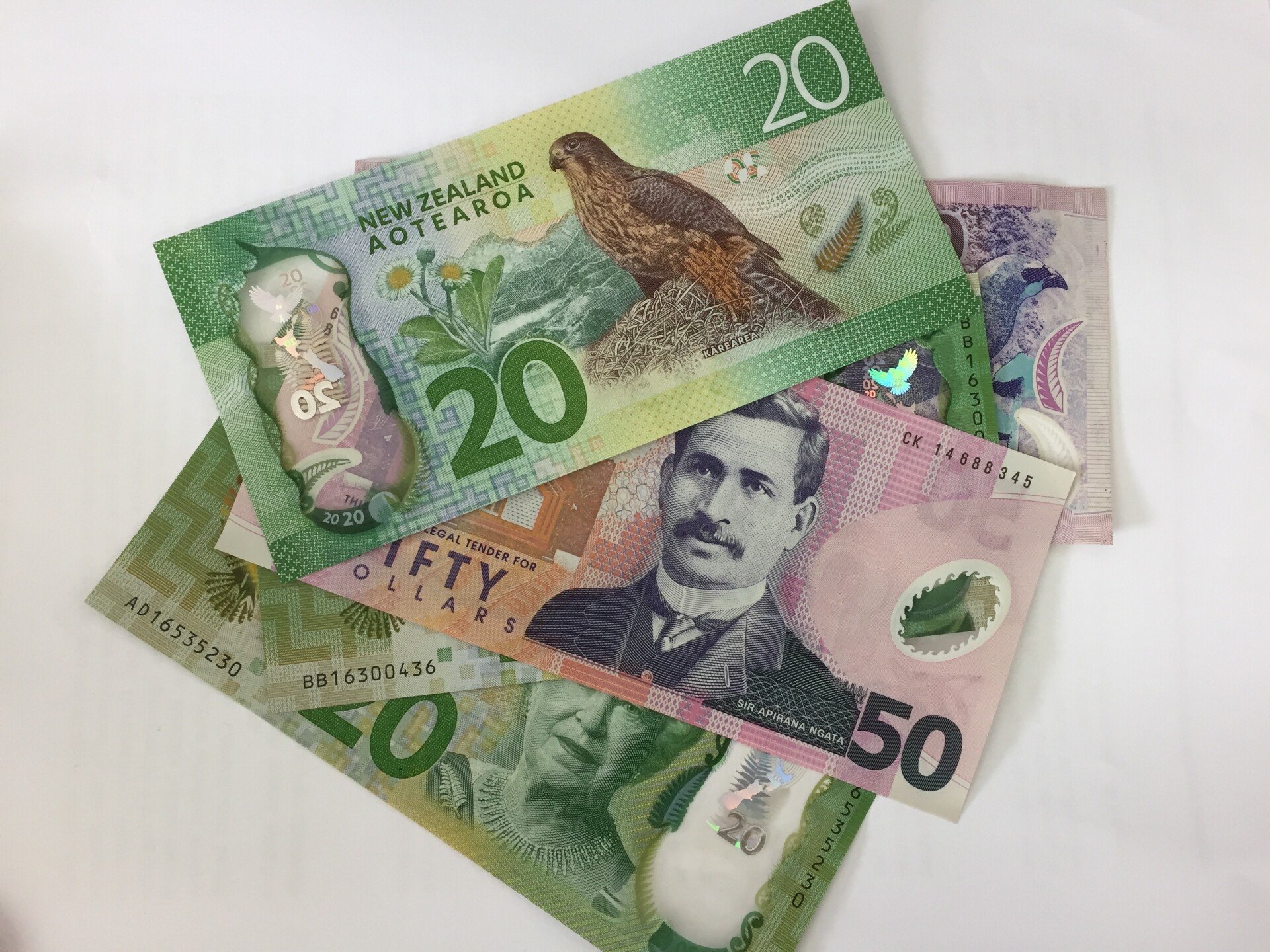- About Us
-
Trips
-
 Kiwi-Style Hiking
Kiwi-Style Hiking
-
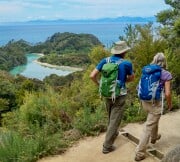 Great Walks
Great Walks
-
 Hiking Tours
Hiking Tours
-
 Alpine Hikes
Alpine Hikes
-
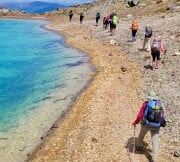 Custom Groups
Custom Groups
- Huayhuash Trek
- Family Northern Explorer
- Family Southern Explorer
- Lake Waikaremoana Hike
- Women's Custom Tours
- Women's Southern Wilderness
- Coast, Canyons and Mountains
- Coastal Wanderer Custom Tour
- Don't Cross the Ladies
- Secret South Custom Tour
- Tekapo Hike
- West Coast Custom Tour
- World Heritage Custom Tour
-
- Blog
- Shortlist
- About Us
- Trips
- Blog
- Shortlist

Jul 10, 2024
"Tis impossible to be sure of anything but Death and Taxes." writes some unknown 18-century sage. Three hundred years later, you can add bank fees to this. Does it really cost banks that much to have a digital ledger, stored in the cloud, with a number in your favour?
Anyway, I digress, it's really important to understand that bank fees and other rackets are not really based on logic but rather on what the population will put up with. Each country's citizens learn the best and least painful route through Dante's inferno. Don't assume a saving that you make at home will work in NZ, or for any person coming the other way, or for someone travelling here from a different country.
We’ve put together a few options and suggestions below relating to money matters when travelling to New Zealand. Say hi to Virgil (Dante's poet) if you see him en route.
Cash
Only NZ currency is accepted in New Zealand. Notes are used for denominations NZ$5 and above. Coins range from 10 cents to $2. Notes are plastic which is great for hikers as they don't get soggy.
The exchange rate and fees offered at airport kiosks are not usually not as good as those offered at banks, and generally, even international cash machines offer better exchange rates than airport kiosks. But if you are only wanting a few emergency dollars, who cares!
ATMs – Automated Teller Machines
ATMs are readily available throughout New Zealand, although limited in variety in smaller rural towns. There shouldn’t be a problem accessing cash withdrawals when required. See the notes about Global ATM Alliance in the 'to summarise' section below as well.
Fees vary hugely depending on where you are from and how much they hate you. It could be as bad as 2% of the withdrawal amount and/or a fixed fee of $5 to $20, or it could be free. Make sure you ask your home bank. There is no chance you will get that information about your bank charges here. It can vary across the different ATMs too, and how much they despise each other.
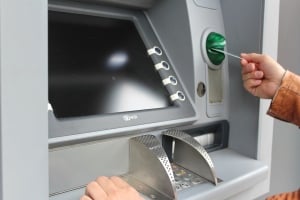 These fees can add up to a meaningful number and can make a credit card cheaper.
These fees can add up to a meaningful number and can make a credit card cheaper.
Check with your bank prior to leaving your home country as to which ‘partner’ banks offer ATM cash withdrawals without charging the international transaction fee.
A New Zealander travelling overseas can expect to pay a fee in the region of NZ$8 every time they withdraw cash from an overseas ATM. If they have a Westpac electronic account and use an ATM belonging to a member of the Global ATM Alliance they won’t be charged this fee. Other fees will still apply though, such as the foreign currency conversion fee.
Debit Cards
A debit card is linked to your electronic transaction account and withdraws funds from your account for the purchase. They can generally be used like a credit card. Two things to be aware of:
- There may be a delay between making the purchase and the money being debited from your account so just keep track of purchases so you don’t overdraw your account
- They may not be accepted for “holds” on funds, such as for car hire or at hotel check-in, so you may like to have a credit card as a backup.
- Paywave and contactless transactions is the number one way kiwis prefer to pay, the current contactless payment limit is NZD$200. Be wary of high fees, they can be anywhere from nothing, through to 2.5% and differs with each retailer.
Travel Cheques / Cards
Remember those things called travel cheques (and the Sony walkman)? Does anyone still use travel cheques? We looked on the interweb, and they seem to exist still but the issuers seem quite cagey on why you would bother! Traveller’s cheques will definitely ruin your credibility (and you can't use them in NZ). Just don't do it.
Consider a Travel Card instead - a Travel Card (like a Wise travel card) is a prepaid card, which can be topped up as required from your electronic account. It can be used like a credit card, online, over the phone or for ATM withdrawals.
Do a comparison of fees before selecting a Travel Card to ensure you get one that is right for you. Some have a fee for purchasing a card, loading a card, monthly fees, fees for ATM use, an inactivity fee, and even fees for cancelling a card.
One of the great advantages of a Travel Card is that often they allow you to preload different currencies onto the card so you can make purchases and ATM withdrawals in those currencies without paying a foreign exchange fee. Keep an eye on the exchange rate and preload the card prior to travel when the exchange rate is good.
Cards are generally valid for two years before expiring. To avoid the inactivity fee which some providers may charge, just use the card occasionally when back home, and then let the card expire instead of paying a cancellation fee. Any credit remaining will be refunded.
Credit Cards, Apple Pay and Google Pay
An increasing number of retailers also have Apple / Google Pay. This is more secure than credit cards as your card details are not disclosed.
All major credit cards are accepted in New Zealand, with Visa and Mastercard the most widely used. American Express is not readily accepted everywhere. If your main card is American Express it’s recommended you bring a Visa or Mastercard as a backup option.
For larger transactions, it's typical for a credit card surcharge to be added to your bill to cover the 2-3% fees that the banks charge the business for using a credit card system. This won't often happen at a cafe but if you spend a few hundred dollars or a thousand, expect some quite significant fees charged!
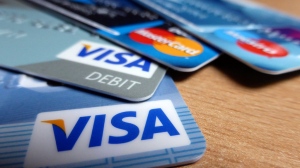
Try and find a credit card that doesn’t charge foreign transaction fees. If you’re a ‘kiwi’ travelling overseas then you’re out of luck; no New Zealand bank offers a credit card with zero fees for processing transactions in a foreign currency. Some have lower fees than others but you need to weigh up the annual fee against the transaction fees and decide what works best for you.
Best not to make an overseas cash advance withdrawal using your credit card as the fees and interest will soon mount up.
And lastly – ensure you let your bank know (yes really!) which country you are travelling to so they don’t ‘freeze’ your card on suspicion of fraud. There are a lot of computers steaming away 24-7 red flagging transactions as the whole system is such an artifact of an old security epoch (which is why google pay and apple pay are supposedly more secure).
To summarise
Some simple suggestions to keep fees to a minimum:
- An electronic account with a bank that is a member of the Global ATM Alliance, means that you may be able to use your EFTPOS or debit card at a Westpac ATM in New Zealand without fees.
- Withdraw larger amounts of cash from foreign ATMs to avoid fees adding up for each small withdrawal
- Load a prepaid Travel Card in the currency of the country you are traveling to at a time when the exchange rate is good.
- Keep an alternative credit or debit card hidden elsewhere in your luggage, so if you lose your wallet/phone, you won't be doing dishes in the restaurant to pay for your meal! It is highly optimistic to expect a bank to get anything achieved of this nature before next Christmas.
New Zealanders travelling overseas may find this blog on How to Avoid Bank Fees and Access Money While Travelling helpful.

Other things
GST (NZ's VAT)
A Goods & Services Tax of 15% is charged on all goods and services purchased within New Zealand.
If GST is not identified as an additional fee on a retail item, then (by law) it is considered included in the price. For example, if a scenic flight is advertised as $500, and it does not state anywhere that GST is additional, then it is by law included in that price. The exception to this is that Wholesale (business-to-business transactions) are considered GST exclusive. However, you are very unlikely as a tourist to encounter this sort of transaction.
Visitors cannot claim this tax back, but if a supplier ships a major purchase to a visitor's home address the GST will not be charged.
To buy tax-free and GST-free goods in New Zealand, it must be through a registered tax and GST-free retailer, and you can’t take possession of the goods while you are still within New Zealand.
Only a few retailers in NZ are signed up to this scheme, because of the inconvenience of couriering purchased goods to the airport or alternatively posting to the traveller’s home address.
However, all international airports in New Zealand do offer tax-free shopping.
Other reading
Some other money matters and tipping advice here on the official NZ tourism website including typical costs (it's kept up to date).
Happy spending!

